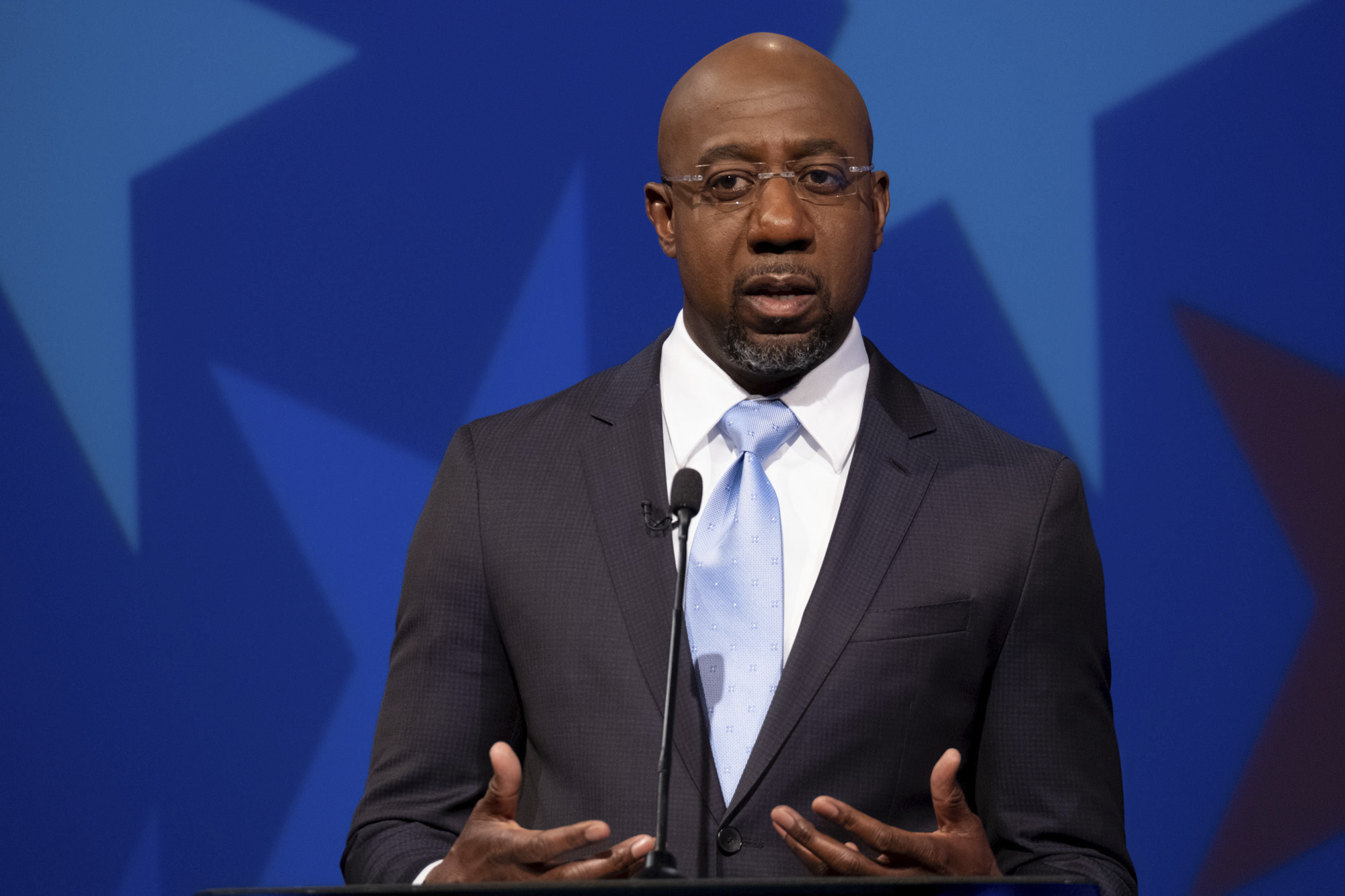Warnock Urges FAA Not To ‘Cut Corners’ On Spaceport Review

U.S. Sen. Raphael Warnock of Georgia is the first federal official from Georgia to publicly raise questions about the proposed spaceport project in Camden County.
Ben Gray, Pool / Associated Press file
U.S. Sen. Raphael Warnock of Georgia is pushing back on the nearly completed environmental review of the proposed spaceport in Camden County.
“This is not the time to cut corners on environmental review or cut out public participation in the evaluation of this project,” Warnock wrote to two top Federal Aviation Administration officials Monday.
After more than five years, the agency is scheduled to rule on the controversial rocket launch site proposed for Georgia’s coast in late June.
Warnock, a Democrat, is the first federal official from Georgia to publicly raise questions about the project.
In 2018, Georgia’s entire bipartisan House Congressional delegation and two Republican senators signed letters in support of the coastal Georgia county’s spaceport license application.
Camden County officials have defended the project’s economic development potential, while environmental activists and nearby homeowners have raised safety and environmental concerns.
Warnock declined to weigh in on “the merits of the proposed Spaceport,” instead outlining “possible shortcomings in the environmental review process,” which has been underway with the FAA since 2015.
Neither the FAA nor Camden County responded to requests for comment.
Warnock told the FAA he is “troubled” by the National Park Service’s ongoing complaints about the project, most recently outlined in a December letter to the FAA. The spaceport’s proposed rocket launch paths travel over Cumberland Island National Seashore, which is managed by the Park Service. The risk of wildfire to Cumberland and Little Cumberland Islands from rocket debris has not yet been addressed, he said.
Both islands are home to several private residences, which lie beneath the rocket trajectories, and Warnock said the spaceport “would be the closest launch facility to populated areas ever approved by the FAA.”
Warnock requested that the federal agency “not rush to finalize the [environmental impact statement] and carefully and thoroughly evaluate the effects of this project on the local environment.”
After the county amended its spaceport operator license application in December 2019 to pivot from medium-large rockets to small rockets, the FAA announced Camden would have to redo part of the environmental review process, including an additional public comment period.
However, last September, the federal agency backtracked, saying the county would be able to skip those additional steps straight to the final environmental review.
The FAA argued at the time that the environmental impacts of small rockets were “subsumed within the potential impacts of the medium-large lift class vehicle” and cited a Trump administration executive order urging agencies to speed up infrastructure projects as justification.
In his letter, Warnock protested, pointing out that President Joe Biden has since revoked that order and signed a new one requiring the government to be guided by “the best science” and prioritize environmental protection.
At the state level, Gov. Brian Kemp had previously been supportive of the project, but on a recent trip to Brunswick, he declined to take a position, given the Georgia Department of Natural Resources’ new involvement. The agency has asked the FAA for more time to review the project’s environmental compliance.
“I’m letting that process play out,” Kemp said in late April. “I think that’s what the state agencies are there for, and we’ll let them finish that and see where we are.”
The FAA is scheduled to release its final environmental impact statement for the project in late May.
A final decision on the project is expected in late June. Around that time, the Department of Natural Resources has said it will make its own ruling.
A spaceport operator license would not allow rockets to actually launch from the site, and any proposed launches would need additional federal approval.








